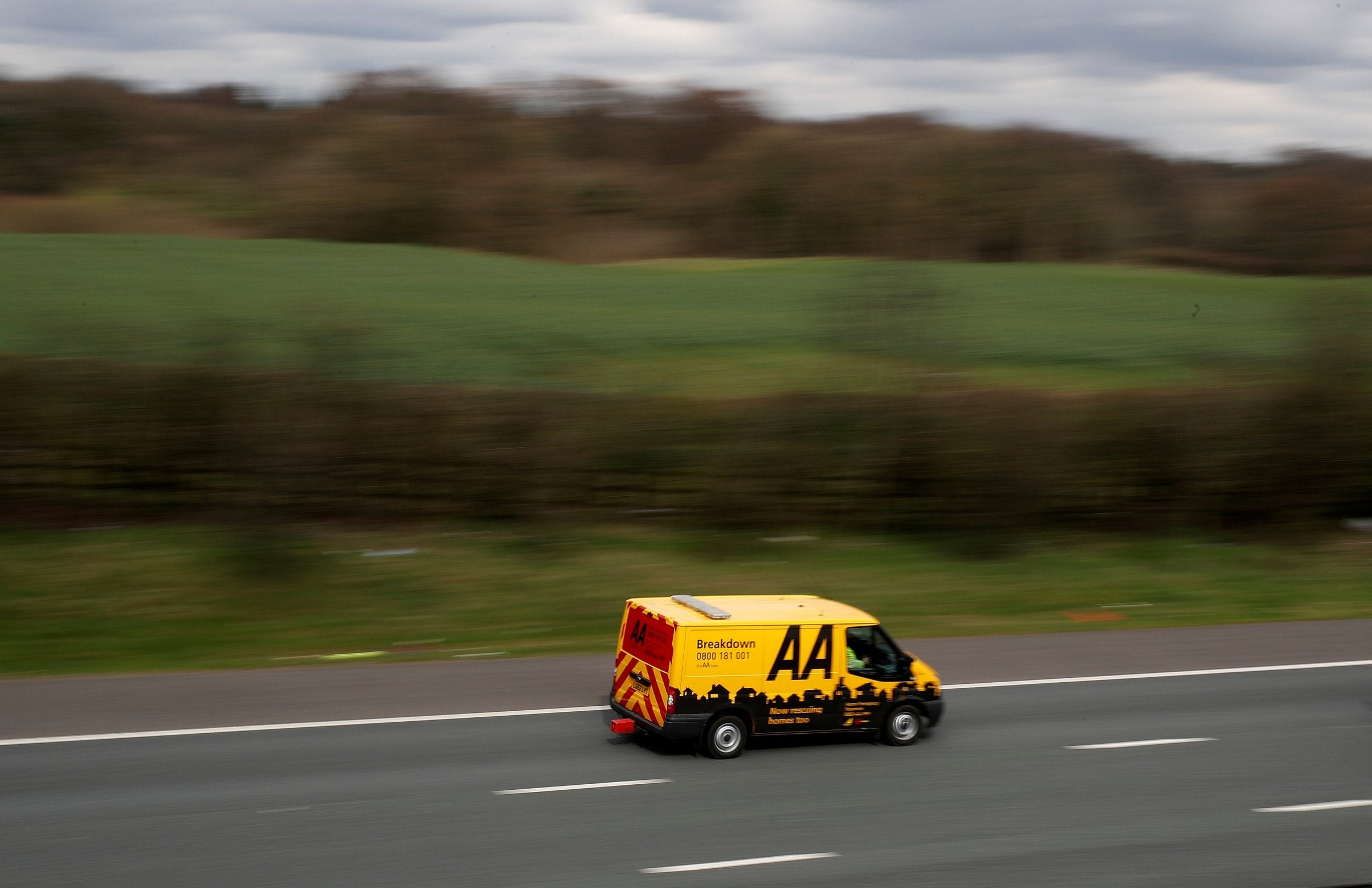Drowning in debt AA sold for a song to private equity as City mug money go round continues
The company was loaded up with debt and floated in 2014. If it gets through its current troubles there’s a decent chance it will be back for a do over in a few years time

The AA has been looking like one of its beleaguered clients for a while now. The business has basically been stuck on the hard shoulder with an engine pumping out something that could be steam but smells a lot like smoke while awaiting rescue from someone with a van.
That rescue has now arrived in the form of a private equity consortium with the only van willing to pick the distressed drivers up (another one said no thanks and drove away a few weeks ago).
The business is being purchased for £219m, which is less than 10 per cent of the value of its debt (about £2.6bn) and not quite twice what it has been paying in interest on that (about £128m). Since coming to the market in 2014, when it was valued at £1.4bn, the AA has lost 85 per cent of its value. Remarkably it is still making money, but those sorry numbers tell their own sorry story.
How it got here is a good example of the City’s mug money go round, the mugs being those who do the ostensibly sensible thing and save via pensions and/or ISAs run by big city money managers which invest in the markets on their behalf with the aim of providing something better than the miserable returns currently offered by cash.
The company was floated off from Acromas, one of those silly made-up names dreamed up by large businesses which are supposed to sound neutral but just sound rubbish. It was owned by, you’ve probably guessed it, another private equity consortium.
Acromas was made up of Saga and the AA, two businesses without much in common other than having recognisable brands and some financial services. They had been put together by their owners in the vague hope that they could sell products across the respective customer bases.
It didn’t work too well, so in 2014 the AA was loaded up with debt and sold off to City money managers, the people who manage those pensions and ISAs I talked about and who really ought to have known better. Except that time and time again they allow themselves to get sold pups. That is what the AA has been for them.
If asked to defend the deal they entered into they’d probably tell you that the debt was “manageable” at the time because the business was “strongly cash generative” with attractive growth prospects or some such. But clearly the debt was not manageable because we are where we are and TowerBrook Capital and Warburg Pincus have got hold of the thing.
As well as buying the equity, they’re paying down some of the debt and have promised to “support the growth of the business” by investing in IT (which it can’t easily do at the moment because, debt) while buffing up the insurance business and keeping a remarkably loyal customer base sweet.
If they can fix it, they will at some point seek at exit, perhaps once again by approaching the public markets after re-upping the debt and taking out as much money as they can.
That tends to be what happens with these things.
There’ll be investment banks hired for handsome fees, charged to the AA, to knock on the doors of City fund managers. Some of them will twitter a bit about the debt, but they’ll come around in the end because they always do and because maybe this “strongly cash-generative” business with a boffo insurance arm will work this time.
And if it doesn’t? They won’t worry because it’s other people’s money they’re playing with. Our money. Mug money.
At the end of line there will, eventually, come knocking at the door another private equity consortium to take the thing private again. And you know what they’ll do? Of course you do! They’ll lather, rinse, and repeat.
Join our commenting forum
Join thought-provoking conversations, follow other Independent readers and see their replies
Comments


Bookmark popover
Removed from bookmarks